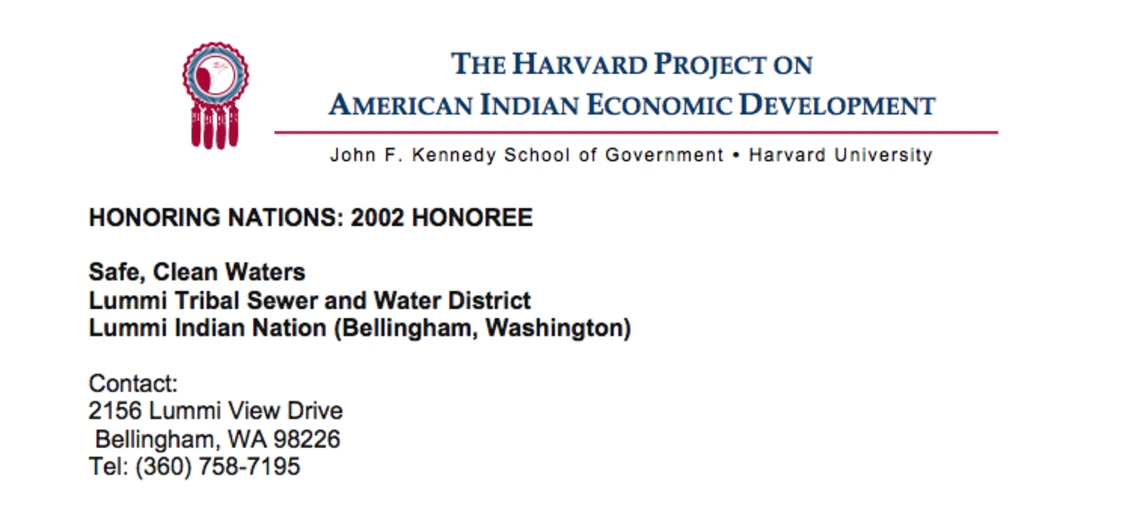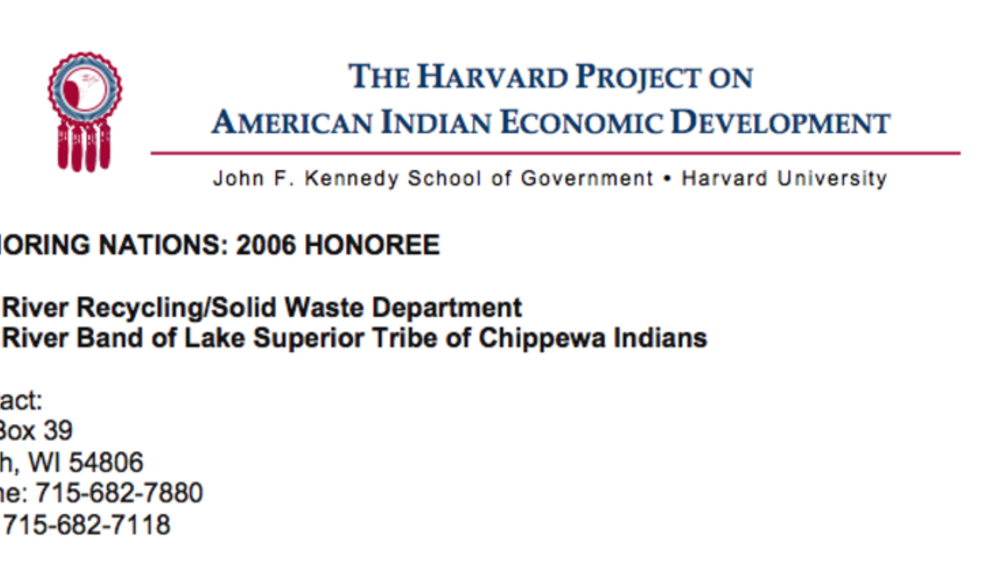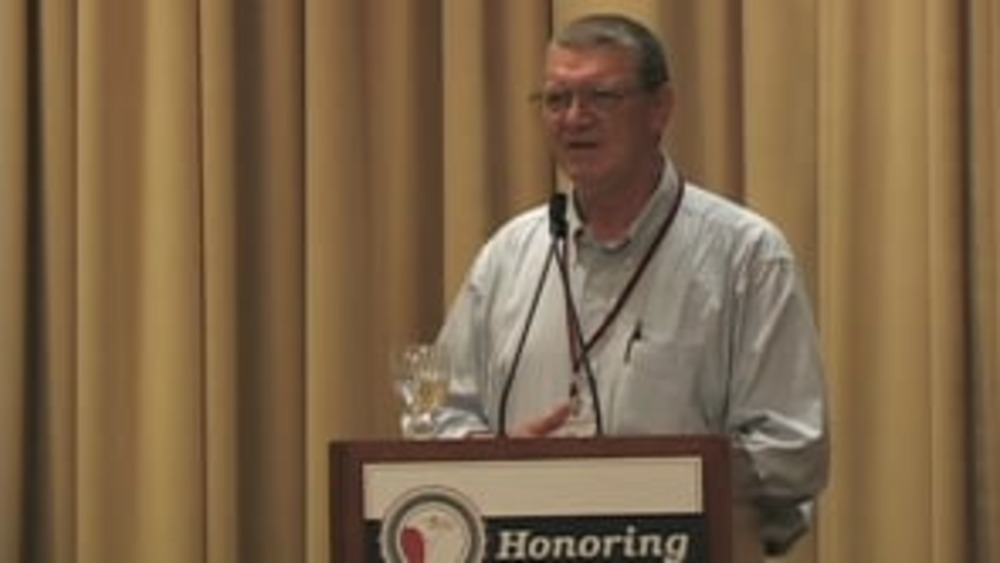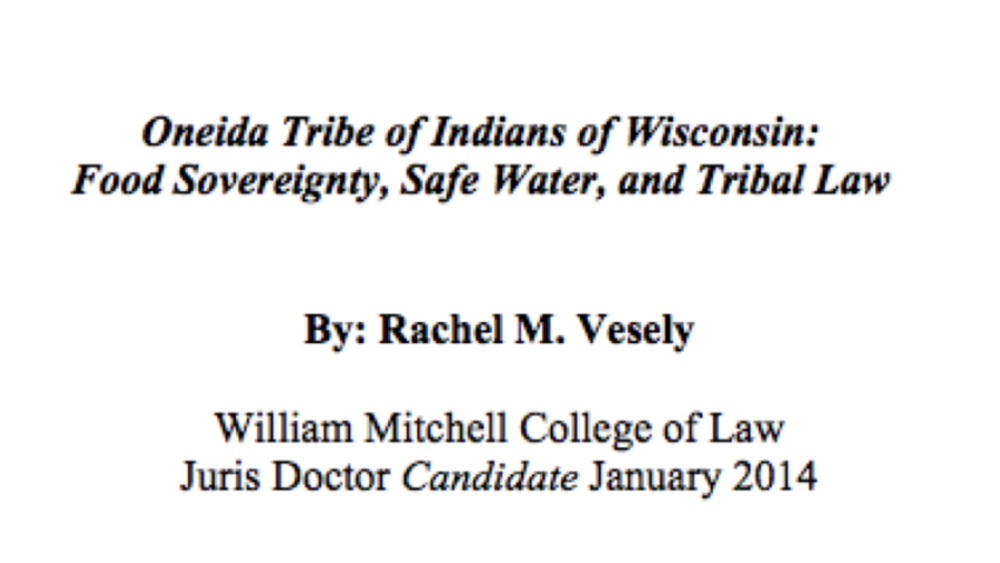Governed by a five-member, independently elected board that includes two seats that are open to non-tribal fee land owners, the Lummi Tribal Sewer and Water District provides water, sanitary and sewer infrastructure, and service to 5,000 Indian and non-Indian residents living within the external boundaries of the Lummi Indian Reservation. The District adheres to strict health and environmental standards, sets and collects necessary fees to support operations and facilities improvements, and, through sound management, reduced dependence on river withdrawals by 91% in the last year — all factors that contribute to the District’s credibility and effectiveness.
Additional Information
"Safe, Clean Waters". Honoring Nations: 2002 Honoree. Harvard Project on American Indian Economic Development, John F. Kennedy School of Government, Harvard University. Cambridge, Massachusetts. 2003. Report.




